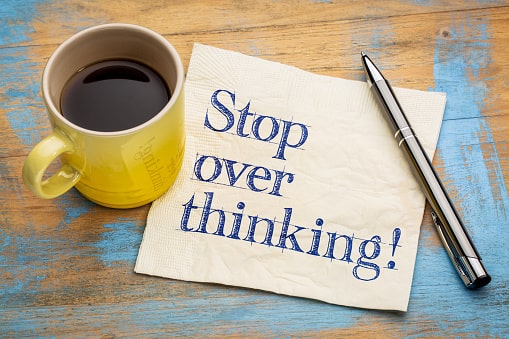Intuition is the ability to understand or sense something without a rational explanation. Often felt as a gut feeling or hunch, it taps into subconscious knowledge gathered from experience.
Scientific studies confirm that intuitive insights are real and can guide our decision-making. While it may feel like magic, intuition is a natural process that blends emotional awareness and pattern recognition. It helps you sense danger, solve problems, and understand people better.
This article explores how intuition works, its benefits, signs of being intuitive, and how you can strengthen this powerful inner guide. So, let us get right into it!
What Is Intuition?
Intuition is a guiding force that often manifests as a sudden feeling, insight, or hunch when making decisions. It is not a calculated or logical process but rather a natural ability rooted in subconscious knowledge.
A study by Galang Lufityanto, Joel Pearson, and Chris Donkin from the University of New South Wales confirms that intuition is real. Their research suggests that intuition is based on unconscious information stored in our minds, influencing our decision-making process.
Some believe intuition extends beyond the five senses, acting as a deeper awareness of the world. However, while intuition can be helpful, it is not always accurate and should not be the sole factor in making critical choices.
What Does It Mean To Be Intuitive?
Being intuitive means having the ability to sense, understand, or know something without conscious reasoning. Intuitiveness is when you access information beyond your five senses. There is a higher power or an authoritative voice within you that’s guiding you.
Also called gut feeling or hunch, intuitiveness also makes you highly empathic or gives you the ability to understand others’ problems. You may be able to understand others’ dilemmas without them explicitly expressing them to you.
All people are not equally intuitive. However, this awareness can be heightened with meditation, mindfulness, and other spiritual practices.
How Does Intuition Work?
There isn’t any crude information on how intuition exactly works. It’s a multifaceted phenomenon with a range of mental processes. Psychiatrist Peter C Whybrow, in her book, The Well Tuned Brain, says that intuition is a key component to tuning your brain.
He also believes that intuition results from previously acquired experiences or learned patterns. So when a recognizable pattern or similar pattern emerges, our intuition immediately emerges.
The accumulation of experiences in the unconscious mind works immediately without having to access them.
Are There Any Benefits Of Being Intuitive?
Even though it may sound a bit unreal, there are myriad benefits of being intuitive. By synchronizing your mind and body, intuition unlocks supreme powers. For example-
- Strong intuition may help you send messages via your mind.
- Intuition helps you make better decisions. Even though intuition may not be 100% accurate, it helps you make informed and well-judged decisions.
- Intuition guides you in difficult situations in life. It warns you about wrong decisions and saves you from further problems.
- You may be able to predict the future with intuition. While you may not be able to predict significant occurrences, you can sense some upcoming changes via intuition.
- Intuition makes you more self-aware.
- Intuition also makes you empathetic toward others. It enables you to relate to others’ problems and difficult situations.
- Since you can sense what’s coming ahead, you won’t experience anxiety.
How To Become Intuitive? 5 Effective Ways
Following are some of the useful ways to tap into your intuitive side and live an extraordinary life-
Listen To Your Hunch
Don’t ignore your gut feeling. Pay attention to what your inner voice is saying before an important event or anything in general.

Stop Overthinking
Intuition can get distracted from too much internal chaos. To avoid that, stop paying too much attention to important things, don’t anticipate unreal or imaginary things, and stop trying too hard to be precise in everything.

Practice Mindfulness
Mindfulness practices like yoga or meditation are a great way to deepen your intuitive side. Meditation brings you closer to your inner self and helps you gain knowledge beyond external things.

Meditating, especially before bed, is beneficial to activate your intuition because it opens up your subconscious mind.
Don’t Seek Outside Validation
Don’t get influenced by others’ opinions, ideas, or social norms. Trust your instincts or judgments. Intuition is all about trusting that inner voice that is guiding you.

Seeking validation from others is the biggest distraction of intuition; hence, avoiding it is the best way to deepen your intuitiveness.
Be Mindful About Your Dreams And Signs
Notice any special messages you received in your dreams. People receive many signs in their dreams which can guide their intuition. Other than dreams, notice anything that catches your attention.

Intuition also speaks to you with signs and symbols. You may feel a different vibe about something or some environment. Don’t ignore it. Ask yourself what is different about this place or why you feel a certain way about this place. These questions will definitely help you awaken your intuitiveness.
Signs of an Intuitive Person
Intuitive individuals often share certain characteristics that set them apart. Here are some key signs that you might be an intuitive person:
Strong Gut Feelings
- You often experience “hunches” or gut feelings about situations or people
- These feelings are frequently accurate, even when you can’t explain why
Heightened Empathy
- You easily pick up on others’ emotions and energy
- You can sense when someone is upset, even if they’re trying to hide it
Vivid Dreams
- Your dreams are often detailed and meaningful
- You may experience prophetic dreams or gain insights through your sleep
Natural Problem-Solver
- You quickly grasp complex situations and find creative solutions
- Your mind connects dots that others might miss
Highly Observant
- You notice small details in your environment
- You’re attuned to subtle changes in people’s behavior or mood
Trust in Inner Wisdom
- You rely on your instincts when making decisions
- You often choose what “feels right” over what seems logical on paper
Sensitivity to Energy
- You can sense the “vibe” of a room or situation
- Crowded places might overwhelm you due to the mix of energies
Here’s a quick comparison of intuitive vs. non-intuitive decision-making:
| Intuitive Approach | Non-Intuitive Approach |
| Relies on gut feelings | Depends solely on facts and logic |
| Quick decision-making | May take longer to decide |
| Considers the big picture | Focuses on specific details |
| Values emotional input | Prioritizes rational thought |
Being intuitive doesn’t mean ignoring logic or facts. Instead, it’s about balancing rational thinking with your innate sense of knowing. Intuitive people often describe their experiences as:
- “I just knew it was the right choice.”
- “Something told me not to trust that person.”
- “I had a feeling things would work out this way.”
By recognizing and nurturing your intuitive abilities, you can tap into a powerful resource that complements your logical thinking. This combination can lead to better decision-making and a deeper understanding of yourself and the world around you.
Remember, intuition is like a muscle – the more you use it, the stronger it becomes. Pay attention to those gut feelings, practice mindfulness, and trust in your inner wisdom. You might be surprised at how often your intuition guides you in the right direction.
Related Read:
Final Thoughts!
Intuition isn’t just a mystical idea—it’s a valid and powerful tool rooted in your subconscious experiences.
By learning to trust your instincts, avoiding overthinking, and practicing mindfulness, you can sharpen your intuitive abilities. Being intuitive doesn’t mean rejecting logic; it means adding another dimension to your decision-making process.
Whether it’s reading people better, sensing change, or making confident choices, intuition offers silent guidance when logic falls short. Tune in to your inner voice, notice subtle signs, and let your intuition become a trusted companion in life’s most important moments.
So get to these practices and build a strong intuition today!